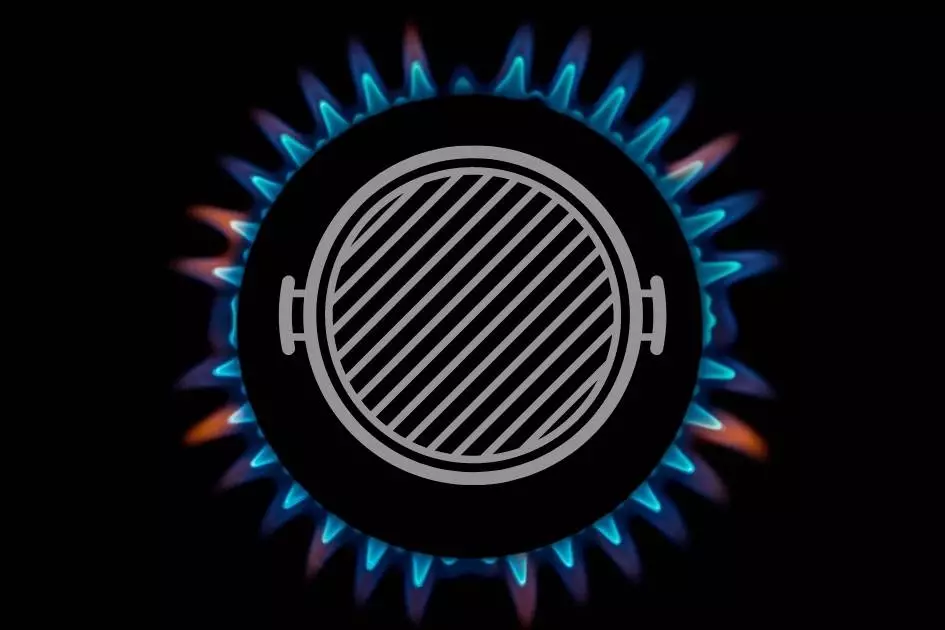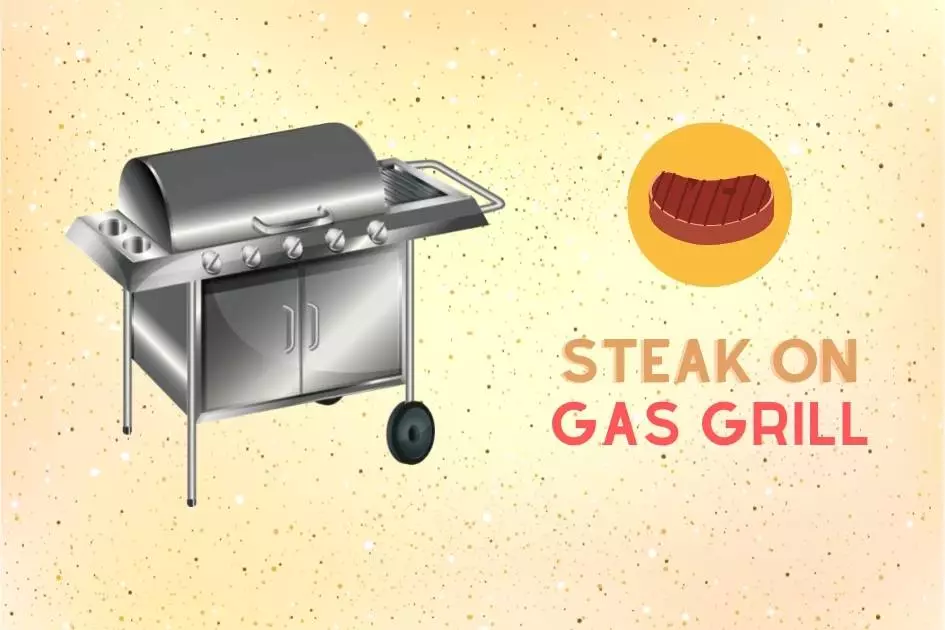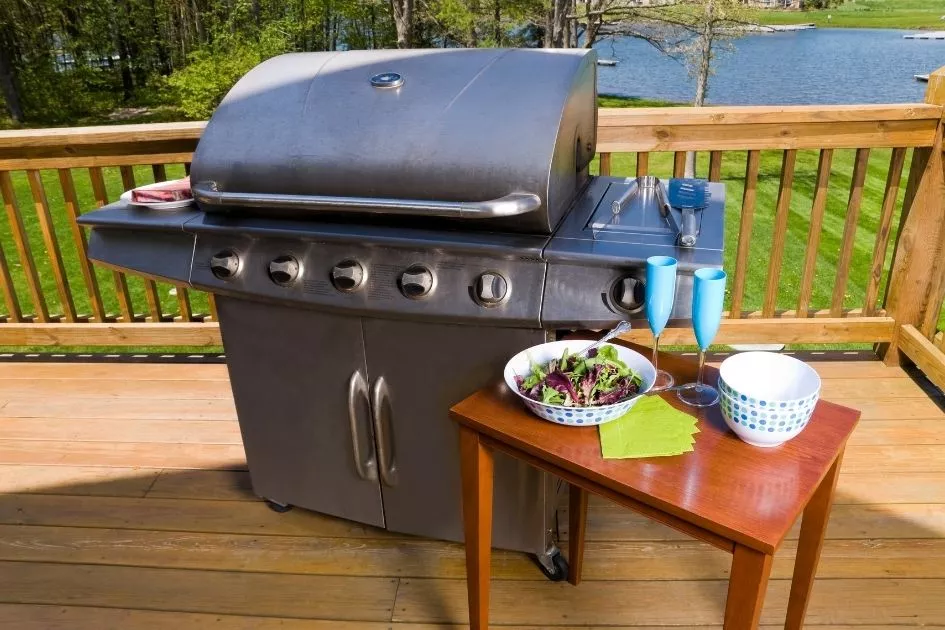When you think about cooking outdoors, what comes to mind? Is it the smell of fresh grilled food wafting through the air on a summer evening? The feeling of sitting around with friends and family eating delicious food together? What about that mouthwatering aroma coming from your grill as you wait for your meat to cook to perfection? Whatever it is, there's no denying that grilling is one of life's great pleasures. And if you're anything like this, then owning a propane grill has become an absolute necessity in order to truly enjoy outdoor cooking.
Gas grills are easy to set up and use, but if you're new to grilling then there's some things you need to know. Using your propane grill incorrectly can lead to many problems like flare ups or burnt food which is why we've written this guide for beginners!
Getting Started with your Propane Gas Grill
You dream came true, you finally have a propane grill and decided to fire up your first meal. But now that you've got everything out of the box, what do you need to get started?
Set yourself up for success by getting all of the equipment on this list before firing up your new grill:
- A tank of propane fuel
- Lighter fluid or matches if needed while prepping coals
You have to ensure you have the right propane tank. First, attach a 20 pound or larger size propane tank and always keep it on an even, stable surface where it won't tip over easily. If you notice leaking gas, discard this tank immediately and get another one as soon as possible! You should also avoid using a propane tank that's dented, rusty or corroded for safety reasons.
Lighting the Grill
When it comes to lighting your grill, you'll want to ensure you do this in an open space with enough airflow but no sources of ignition nearby (such as other grills). You can achieve this by turning on all your burners and then waiting a minute or two for them to heat up. Once you're sure the burners are hot, do not open your propane tank until they've reached maximum heat and make sure you keep it at least three feet away from anything flammable like wooden tables, fences or trees (that includes any extra gas cylinders).
This is when using lighter fluid can come in handy. Add some to whatever type of starter material you plan on using- we recommend wood chips over charcoal as this will help prevent flare ups which lead to burnt food that's both bitter and dry! Now light with either matches or a butane torch and allow enough time for flames start coming out of the grill before adding food. Do not soak your coals with lighter fluid as this will only lead to excess flare ups.
Grilling with Your Propane Grill: Tips and Tricks
Now that you've got your grill lit, there's a few things we can teach you about grilling which might prevent some mistakes from happening in the future! The first thing is figuring out how to use those burners correctly- if they're not adjusted properly then uneven cooking may occur due to areas of high heat (or even cold). And if food takes too long getting grilled it could end up drying out or burning on the outside before being cooked all the way through. So make sure each burner has been turned down low enough so no flames are coming off them but still hot enough for proper searing without charring.
Another point we should touch on is the type of food you grill. If it's a quick cooking meat like steak or pork chops, make sure to bring them up to room temperature before placing on the grill and make sure not use any oil as this could cause flare ups due to excess grease in your propane tank. However if you're grilling vegetables- especially starchy ones such as potatoes, peppers and onions- then brush with olive oil first for easy removal from your burners without having to worry about getting raw veggies soaked in burning hot fat!
Direct and Indirect Heat
You're already starting to grill like a pro, but don't forget that there are two main types of heat when it comes to grilling. This is called indirect cooking and direct cooking (but you can also use an area in between for a combination method). Indirect heat means using just one burner on low with the lid down while setting your food over an empty space or tray so they cook from all sides evenly- this allows for large foods such as roasts and whole chickens to be cooked without burning them!
Direct grilling involves placing food directly onto burners which will give off much more intense heat thereby searing meat much faster than other methods. You'll also want to keep moving your food around until it's done being grilled instead of leaving it for too long in one place.
Cleaning up
And finally let's talk about clean up: after each round of grilling always wipe down your burner knobs and cooking grids with an all purpose cleaner so they remain free from gunk and grease which could cause flare ups. And if you're using an old propane tank then be sure to store it in a safe place where kids or pets can't get their hands on it as this is extremely dangerous!

FAQs about Using a Gas Grill
How do you clean the cooking grates?
For stainless steel grids, use a grill brush to get rid of any burnt bits. Nonstick grids may require scraping with a metal spatula or hitting it against the side of your garbage can so that food doesn't harden into one solid block which is difficult to remove without damaging its nonstick coating. Cleaning will also depend on what type of grease was used when barbecuing- for example meat juices are much harder to scrub off than oil! If at all in doubt, check out an instruction manual before attempting anything drastic lest you damage your propane tank and have pellets spilling everywhere.
Should I cover my gas grill while not in use?
In terms of rust prevention, you should leave the lid up. For one thing it's important to let moisture escape so that your propane tank doesn't corrode or grow mold inside. And secondly if left open then any birds which fly into it will have an easier time getting out unharmed! So always keep it on a flat surface and never stack anything on top as this could cause damage- even though they look hardy enough for outdoor use they can be damaged by weight just like other items in your home (such as appliances).
What kinds of things should I avoid when grilling?
Avoid putting any oil onto your cooking grids before turning on your propane tank because this will guarantee flareups due to excess grease- instead use an all purpose cleaner (and maybe some foil underneath meats like burgers and steaks) so you don't get anything soaked in boiling hot fat afterwards! And never store propane tank inside or anywhere where kids or pets can get their hands on it as this is extremely dangerous.
What should I do about propane tank storage?
For one thing, never store a propane tank inside since extreme temperatures could cause cracks and leaks which will lead to an explosion! If at all in doubt, check out an instruction manual before attempting anything drastic lest you damage your gas grill by accident. And lastly make sure that any place where the tanks are stored has proper ventilation so there's no buildup of fumes from gas- if not then they'll corrode over time due to moisture and rust even though they look hardy enough for outdoor use (just like other items in your home).
Final Thoughts
If you're using a propane grill, then we hope this guide has been helpful! We've covered tips and tricks on how to light your grill, the basics of grilling food and even touched on indirect vs direct heat. Of course there's always more to learn- but now that you know the basics we wish you good luck with all your future cooking activities!


